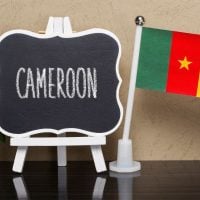Deadline: 17-Sep-21
The United Nations Development Programme (UNDP) has launched its proposals for Global Environment Facility (GEF)-Small Grants Programme to provide support to relevant small-scale activities by community-based organizations (CBOs), non-governmental organizations (NGO) and NGO networks in developing countries.
The Seventh Operational Phase of the GEF Small Grants Program in Indonesia to be financed through this project, aims to enable communities and organizations in Sabu Raijua Regency (part of the Savu Sea National Park in East Nusa Tenggara); Nantu Boliyohuto Forest (Gorontalo and Boalemo Regencies); and Bulukumba Regency (South Sulawesi); and Kendal and Wonosobo Regencies (Central Java) of Indonesia to take collective action through a participatory landscape planning and management approach aimed at enhancing socio-ecological resilience producing local and global environmental benefits.
SGP Indonesia will support specific community-based actions in each landscape by financing small-scale projects implemented by local community organizations and coordinating them within the priority landscapes to achieve landscape-scale impacts.
Funding Information
- USD 169,602 (project management) for the project management to manage US$3,561,644 in total.
- The US$ 3,392,042 will be distributed to the selected NGOs/CBOs based on the decision of National Steering Committee (NSC) conducted by the GEF SGP-7 Secretariat.
Projects Criteria
- Activities eligible for support include projects that link to the GEF focal areas of land, biodiversity conservation, climate change mitigation, and the protection of international waters.
Activities
The proposed activities should demonstrate how to to build social, economic, and socio-ecological resilience in Wallacea
- Sabu Raijua Regency (part of Savu Sea National Park); East Nusa Tenggara;
- Nantu Boliyohuto Forest; Gorontalo and Boalemo Regency, Gorontalo;
- Bulukumba Regency, South Sulawesi; and Central Java
- Kendal and Wonosobo Regencies, through community-based activities for global environmental benefits and sustainable development.
- In this regard, the selected NGO will focus its efforts on undertaking several activities:
- To provide support for activities to develop resilient landscapes for sustainable development and protection of the global environment at the community level;
- To conduct activities aiming at enhancing and strengthening collaboration among communities, local governments, and other stakeholder to promote and create sustainable socio-economic development through community based activities;
- To provide support for landscape governance and adaptive management activities for enhancement and replication
- It is expected that the several activities mentioned above shall consist of gender-responsive values to promote equal rights of men and women (focusing on women’s involvement in the areas where the areas are men dominated access). It would not only to limit the balance gender representation but also to ensure the active involvement of women participation.
Location and Target Beneficiaries
- The selected organization will work in Jakarta (for close coordination with UNDP CO Indonesia, GEF-OFP, and the National Steering Committee members) and 4 (four) targeted landscapes.
- The selected organization is expected to work closely with local government partners, local NGOs/CBOs, Ministry of Environment and Forestry, University/Research Institutions, and other related stakeholders.
- The organization will be responsible to maintain regular communications with focal points from UNDP Headquarter for Upgraded Country Programme (UCP), UNDP Indonesia Country Office and other relevant stakeholders.
Scope of Services and Expected Results
The selected NGO is expected to assure these following outputs:
- Output 1: Community level small grant projects in the selected landscapes/ seascapes that restore degraded land, improve connectivity, support innovation in biodiversity conservation and optimization of ecosystem services, including sustainable use of biodiversity, recovery of native vegetation, integrated fire management, water catchment protection, etc.
- Output 2: Community level small grant projects in the selected landscapes that promote widespread adoption of sustainable agro-ecological practices and systems by small and marginal farmers, including agroforestry, integrated crop-livestock-tree systems, etc.
- Output 3: Targeted community projects documenting and reviving traditional agro-biodiversity knowledge through insitu and on-farm crop genetic resource conservation, including seed selection and exchanges, participatory plant breeding, linked to food security, markets and relevant government schemes and programmes.
- Output 4: Targeted community projects promoting sustainable livelihoods (i.e. activities that promote market access, organic and green products as well as microfinance opportunities).
- Output 5: Community level small grant projects to build the capacities of community organizations to plan strategically and implement projects that increase energy efficiency and reduce impact on climate through use of renewable energy (fuel-efficient stoves, micro hydro, etc.) and waste management.
- Output 6: A multi-stakeholder governance platform in each target landscape develops and executes multi-stakeholder agreements for execution of adaptive landscape/seascape management plans and policies and enhanced community participation in land-use decision making and management.
- Output 7: Landscape strategies developed with the participation of community stakeholders to enhance socioecological resilience through community grant projects.
- Output 8: Partnerships between communities and relevant government or other organizations or private company programmes and schemes at different levels established and resources leveraged for scale up and replication of good models/practices
- Output 9: Knowledge from community project innovations is identified, codified and disseminated to multiple audiences, for replication and upscaling.
Eligibility Criteria
- The NGO will be selected based on the capacity (expertise and experience) of the NGO to carry out day-to-day activities as the Implementing Partner to select, assist, propose, monitor, assure, evaluate and report grant recipients (CBOs, NGOs, or academia/ universities).
- Referring to UNDP POPP5 , the Implementing Partner is the entity to which the Administrator of UNDP has entrusted the implementation of UNDP assistance specified in a signed document along with the assumption of full responsibility and accountability for the effective use of UNDP resources and the delivery of outputs, as set forth in such document.
- The accountability of an implementing partner is to:
- Manage the project to deliver the planned outputs and manage risk in accordance with the agreed project document (prodoc);
- Report fairly and accurately on project progress and risk against agreed workplans and results frameworks, in accordance with the reporting schedule and formats included in the project agreement; and
- Maintain documentation and evidence that describes the proper and prudent use of project resources in conformity with the project agreement, and applicable regulations and procedures. This documentation will be available on request to project quality assurers and designated auditors.
For more information, visit https://procurement-notices.undp.org/view_notice.cfm?notice_id=82785









































